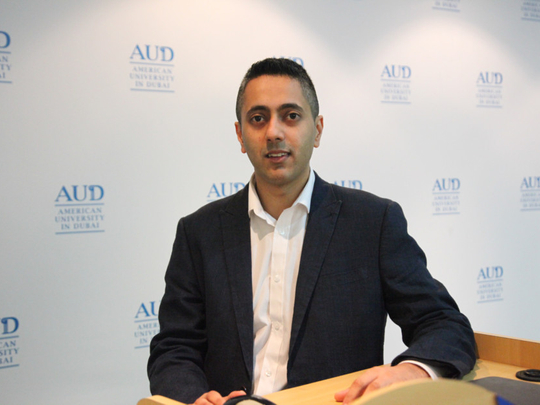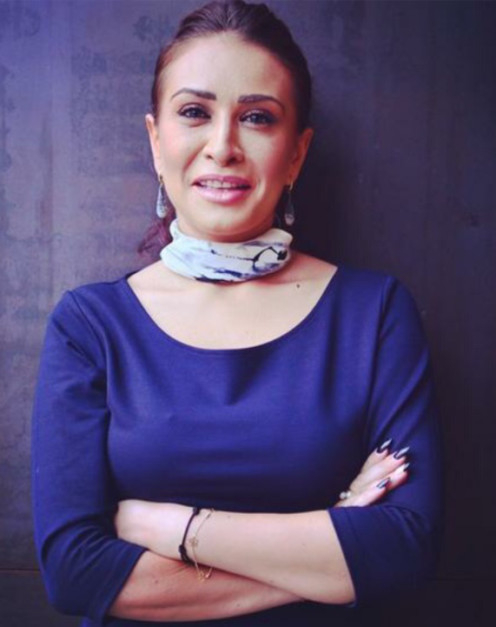
Burden
When a child lies, a parent can take it quite personally
It depends on whether a child is conjouring up a story or saying absolute lies. As a parent, you need to be able to tell the difference. If it is something that is big enough for the child to lie and make an excuse for, then I have always encouraged my own children and the children that I work with to have the courage to face it. It is important to draw the line and gain the child’s trust and let them know that what you speak may have consequences, but it is fine and you should tell the truth.
For parents, when they see their child lie, I think it is quite a heavy burden to carry. You begin to instrospect and wonder why the child does not have faith in you to tell you the truth.
I personally have developed a closer friendship with my elder daughter, who is 14. That facilitates discussion and puts her at ease to share information with me. However, my son is still at a developmental stage, where he is still figuring out the consequences of not expressing the truth. As a parent, you need to figure out how to deal with such situations and honestly, I don’t think any parent can claim that they have figured out the answer.
From Ms Priyanka Chandnani
Educationist living in Dubai
Diplomacy
Punishing children can eat away at their sense of security
Children and adults lie for similar reasons — to get out of trouble, for personal gain, to impress and protect someone, or to be polite. Moreover, children in the early years still don’t differentiate between reality, a day dream, wishes, fantasies and fears. So, we have to consider the child’s developmental age. Toddlers are too young to be punished or blamed for lying and doing so can eat like acid at a child’s sense of security and hope.
Children with higher IQs, who are more socially outgoing or who are raised in a controlling family environment, are more likely to use deception and lies. However, as role models in children’s lives, parents and educators play a vital part in showcasing honesty and influencing them in committing to the truth.
Children who have an established relationship with their parents and teachers, where they feel comfortable talking and disclosing information, are more likely to tell the truth. The best way to teach honesty is to be honest. The challenge is how to set limits without creating a controlling environment. If you notice a child lying, try a diplomatic, mild response that interjects doubts in the child’s lie. Make it clear that you are not taken by the lie, but move on gracefully after listening to and gently correcting the child. If a child is making up a story about something you can respond to it by saying: “That’s a great story, we could make it into a book.” This encourages imagination and not lying. We have to realise that children are not always going to tell the truth. Taking a moment to think about why they are lying should help you respond to their lies appropriately.
From Ms Zeina Moughrabi
Early Childhood Education Specialist and head principal for nursery schools in Abu Dhabi
Morality
Growth is not just intellectual
First, we need to grapple with the difficult task of deciding what we consider as lying. Lying is a form of deception. However, a lie does not have to include bad or malicious intent, white lies are often told with a good intention.
There are a plethora of cognitive demands relating to deception, including understanding how to deceive, the use of adequate language and non-verbal communication, and an appreciation of ethical behaviour and moral reasoning. From a developmental psychology stand point, these cognitive abilities and behaviours do take a long time to develop. Toddlers typically engage in pretend play and learn to make factually incorrect statements, although at this stage ego-centric perception prevents them from understanding the viewpoint of another person. Therefore, I would argue at this age or stage of development the act of lying is not fully understood or utilised. Children do go on to take into consideration what others around them know or believe and they fully appreciate that others can hold false beliefs. Mature moral reasoning develops from about 12 years through adulthood. Thus, it could be argued that lying with malicious, bad or immoral intent takes place later in life.
Lying is not a sign of intelligence per se, it is more the case that the skillset needed to deceive shows some cognitive aptitude. I do not agree that a child lying to a parent is good, I would say the overall cognitive development, which encompasses executive functioning skills and verbal ability associated with lying are needed but morals and ethics are of benefit as well. As a psychologist, for me, the aim of education is growth or development, inclusive of intellect and ethics.
From Dr Jigar Jogia
Associate Professor of Psychology at the American University in Dubai
Environment
How a child behaves has as little to do with what adults “tell” the child and everything with the way adults behave
All behaviour requires, and therefore reflects, certain cognitive skills. Lying in particular reflects cognitive skills associated with executive functioning. However, the ability to do something should not be confused with the act or intention of the behaviour. Just because I can lie does not mean that I will lie.
Lying is neither good nor bad. It is an essential and integral part of human interaction and social cohesion. For the child to survive in the social world they have to learn that social interaction and relationships require a more selective and considered use of what may be the “truth” for them. We could not live in a society where everyone is brutally honest. As such the continuum of lying behaviour plays an important function as “social glue” and is not limited to the more extreme or negative manifestations of the behaviour.
Lying is an adaptive behaviour. The question about whether your child lying to you is good, needs to be rephrased to ask why your child feels they need to lie to you. Lying, like all other behaviour, is influenced by experienced and perceived consequences, both in terms of punishments and rewards. How do you respond to your child in general? Which behaviours are rewarded and which are not? Lying as such may be a means of avoiding rejection, being told you are not good enough or receiving unreasonable punishments.
It may be a solution to an impossible situation. Children often learn to lie as a way of managing the difference between their inner experience and abilities on the one hand, and unreasonable expectations on the other. Enormous pressure is placed on children to perform well, to be successful, to be in control of their emotions and behaviours — expectations that are not always age appropriate. In a family where the expectation is to always be “happy” or “positive”, the child will inevitably lie about his feelings. In a family where school performance is the only thing that makes one a “good child”, an environment for dishonesty and cheating is being created.
The development of moral thinking and reasoning in the child itself has little to do with what adults “tell” the child, and everything with the way those same adults live their lives. The child does not do what he is told, but observes and integrates the behaviour that he is exposed to.
From Mr Juan Korkie
Clinical Psychologist based in Dubai
— Compiled by Huda Tabrez/Community Web Editor
Gulf News asked: Do you think lying is a sign of intelligence?
Yes 28%
No 72%
Have Your Say: Do you think parents react positively to challenges such as children beginning to lie? How did you develop your child’s executive functioning while balancing it with moral and ethical conditioning? Share your views on this debate or join us for future debates. Write to us at readers@gulfnews.com











